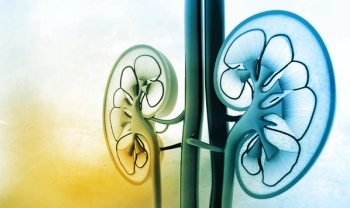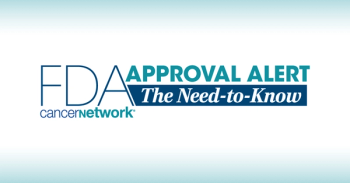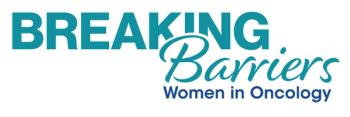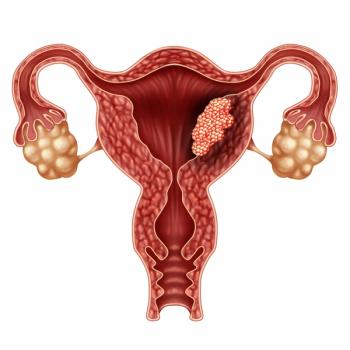
LYT-200 is currently being investigated for those with solid tumors and hematologic malignancies.

Your AI-Trained Oncology Knowledge Connection!


Ariana Pelosci, managing editor for CancerNetwork® and the journal ONCOLOGY®, has been with the team since June 2021. She specializes in both web and print, and runs the social media accounts for CancerNetwork®.
She graduated from the University of Delaware, where she studied Media Communications and minored in journalism and marketing. At heart, she is a Jersey girl, and you can always find her down the shore during her free time.
Ariana loves to read, specifically historical or contemporary fiction. Follow Ariana on Twitter @APelosci or email her at apelosci@mjhlifesciences.com.

LYT-200 is currently being investigated for those with solid tumors and hematologic malignancies.

The National Accreditation Program for Breast Centers looked at time intervals to see where delays occurred throughout the process for those with breast cancer.

Toripalimab plus axitinib is now an approved regimen in China for patients with medium- to high-risk unresectable or metastatic renal cell carcinoma.

The liquid biopsy combining miRNA and CA19-9 had the best validation rates for detecting pancreatic ductal adenocarcinoma.

The PREEMPT trial analyzed samples from 27,010 average-risk adults to determine the specificity of detecting colorectal cancer.

Data from a phase 3b trial support a supplemental new drug application in China for savolitinib in previously treated non–small cell lung cancer with MET exon 14 alterations.

Results from 3 DESTINY trials led to the accelerated approval of fam-trastuzumab deruxtecan-nxki for patients with unresectable or metastatic HER2-positive solid tumors.

Data from the NATALEE trial show that ribociclib may benefit a broad population of patients with early breast cancer who have an increased risk of recurrent disease.

Results from the phase 3 KarMMa-3 trial of ide-cel vs standard of care in previously treated multiple myeloma led to the FDA approval.

Utidelone injection may cross the blood-brain barrier and help treat patients with breast cancer brain metastases.

Jonathan Zager, MD, spoke about the use of observation vs systemic immunotherapy to treat patients with stage IIIA and IIIB melanoma.

Gut microbiome signatures may lead the way for more accurate treatments and diagnoses for patients with colorectal cancer.

Responses with SLS009 were reported at 60 mg once weekly and 30 mg twice weekly for patients with relapsed/refractory acute myeloid leukemia.

Mary-Ellen Taplin, MD, gives her advice on how to achieve work-life balance and make other career advancements in genitourinary cancer.

A Miami Breast Cancer Conference presentation focused on how the new ASTRO partial breast irradiation guidelines could be incorporated into practice.

Rian M. Hasson Charles, MD, MPH, FACS, has a first-of-its-kind role at Brigham and Women’s Hospital that will focus on health equity.

The phase 3 IMpassion030 trial did not find a survival benefit when atezolizumab was added to chemotherapy after surgery for patients with triple-negative breast cancer.

The phase 3 KEYLYNK-006 trial did not meet the primary end points of progression-free and overall survival in patients with metastatic nonsquamous non–small cell lung cancer.

The use of ChatGPT may help to improve genetic counseling for patients with gynecologic cancer.

Results from the KEYNOTE-868 trial showed a favorable benefit of pembrolizumab plus chemotherapy across endometrial cancer subgroups.

The ODAC meeting concluded that ide-cel showed a favorable risk/benefit profile for patients with pretreated relapsed/refractory multiple myeloma.

ODAC voted on the risk/benefit ratio of cilta-cel vs standard of care for patients with lenalidomide-refractory multiple myeloma.

A cohort study for patients with non–small cell lung cancer found an overall survival benefit when targeted therapies were utilized.

Results from the phase 3 RATIONALE 302 trial led to the approval of tislelizumab for patients with unresectable or metastatic esophageal squamous cell carcinoma.

In 2023, the FDA issued a warning on secondary primary malignancies after treatment with CAR T-cell therapy.

The use of a robot to aid in nipple-sparing surgery has been a controversial topic, although ongoing trials may show its potential.

Data from the phase 3 VIALE-A trial showed continued responses during long-term follow-up for patients with newly diagnosed acute myeloid leukemia treated with venetoclax/azacitidine.

Patients with relapsed/refractory follicular lymphoma can now receive zanubrutinib plus obinutuzumab based on the data from the phase 2 ROSEWOOD trial.

Results from the phase 3 CHECKMATE-901 trial led to the approval of nivolumab plus cisplatin and gemcitabine for patients with unresectable or metastatic urothelial carcinoma.

Denosumab biosimilars have been approved by the FDA as Wyost and Jubbonti across various reference indications.